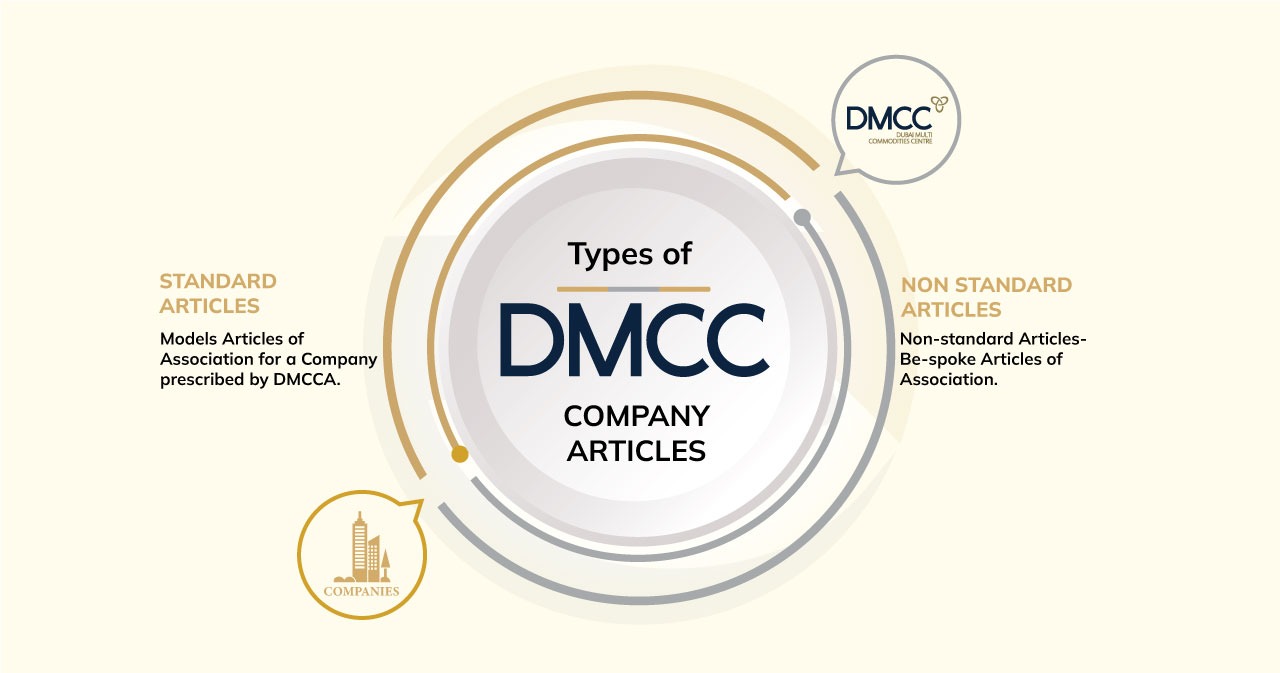As of 2 January 2020, the Company Regulations 2020 replaced the DMCC Company Regulations 2003 (DMCC Regulation No. 1 of 2003). As a result, for companies conducting business within, and from the DMCC, the new Regulations provide more clarity and flexibility. Additionally, the Company Regulations 2020 apply to foreign companies with subsidiaries in the DMCC.
New Regulations exempt Dubai Multi Commodity Centre (DMCC) companies from the requirements of UAE Federal Commercial Companies Law No. 2. Existing DMCC companies are not required to comply with the Company Regulations 2020 unless their current Articles of Association (Articles) are incompatible. To ensure a smooth transition from the previous Company Regulations to the Company Regulations 2020, the Company Regulations 2020 allow the DMCC Authority to enact transitional provisions.
The New Regulations affect the following key Amendments
Several key amendments have been introduced in the framework based on flexibility regarding company’s Articles of Associations, different share types, a new dormant status, and the ability to transfer company incorporation to DMCC.
Capital requirement for minimum shares
- In the current Regulations, the minimum capital requirement of 50,000 AED has been scrapped in favor of a capital requirement of 'sufficient for the activities allowed under the license of the company.' The DMCC Authority should be consulted for further guidance regarding the minimum capital requirement based on individual activities.
- It has been retained that the Registrar has the power to prescribe minimum share capital requirements.
Articles of Association
- The New Regulations in this regard provide some flexibility. The company can either adopt the DMCC's model "Standard Articles," modify any clauses within the "Standard Articles," or adopt an entirely different set of articles.
- Consider the case where a company chooses to adopt its articles. A legal opinion stating that the New Regulations do not conflict with such articles is required in that case.
Classification of shares
- Shares of a company were previously restricted to one class, requiring each claim to have equal voting power and dividend, redemption, and distribution rights. The New Regulations allow for the issuance of different kinds of claims, each with a different set of rights, including the right to vote and to receive dividends.
- The rights associated with the different types and classes of shares must be outlined in the company's articles of incorporation when a company adopts more than one type or class of shares.
Share subscription for non-cash consideration
- Companies can now issue shares for consideration other than cash in, a significant change from the Previous Regulations. An independent valuation of the shares then determines a fair share price for the company and existing shareholders.
- Nevertheless, the New Regulations do outline the following specific exemptions from this allowance:
- When convertible securities are converted into shares or when an option to acquire shares in a company is exercised;
- All the shares of the corporation that have been fully paid up from the reserve funds shall be distributed among the shareholders in proportion to their ownership;
- Often, a company will reorganize and divide its shares according to its types and classes of claims.
Acquisition of treasury shares by an organization and repurchasing them
- According to the New Regulations, a company registered with the DMCC may buy its shares, while the Previous Regulations allowed such purchases.
- Usually, when a company purchases its shares, those shares are automatically canceled, resulting in a diminution of its share capital by their nominal value. However, DMCC companies can hold repurchased shares as Treasury shares under the New Regulations.
Dividend payments and unlawful distributions
- Dividends and distributions are subject to a more extensive and detailed set of provisions under the amended regulations, including an explicit requirement that the directors adopt a simple majority resolution allowing the company to pay immediately after dividend payment affecting distributions. This is because these obligations are in the ordinary course of business. In addition, as part of the new regulation, the definitions of a 'distribution' and a 'redistributable reserve' are clarified.
- Likewise, specific provisions of the New Regulations address the consequences of illegal distribution.
Introducing 'dormant' status
- In the New Regulations, a company can request license suspensions voluntarily. You can ask for voluntary suspension for up to 12 months, but the Registrar must approve an extended suspension period. Registrars may approve a longer period if approved by the Board.
- DMCC Free Zone companies that have their licenses suspended must suspend all operations until the Registrar reactivates the license until the suspension is lifted.
Transfer or migration of companies
- The New Regulations have more comprehensive provisions regarding company accounts and auditors. In accordance with the International Financial Reporting Standards, companies must prepare their audited financial statements.
- DMCC companies must have their auditors approved and registered with the DMCC Authority.
Compliance with accounts and audits
- Companies can migrate and transfer into the DMCC on a case-by-case basis. In addition, provisions in the New Regulations make transferring companies to the DMCC from other jurisdictions easier and more streamlined.
- A DMCC registered company can also move to another jurisdiction under the New Regulations. However, a Special Resolution must be passed, and the Registrar must authorize this move. Additionally, the New Regulations specify the prerequisites that must be satisfied before an application for transfer from the DMCC may be submitted.
Corporate Governance
- The 'Officer Rules' are one of the fundamental changes, which aims to regulate the duties, responsibilities, procedures, and arrangements related to named officials.
- As a result of the New Regulations, DMCC companies must appoint a Secretary who falls within the 'officer' definition. Previous to the New Regulations, it was optional to appoint a Secretary.
- It is now possible for DMCC companies to appoint corporate bodies as secretaries instead of individuals.
- DMCC companies may not provide financial assistance to a director under the New Regulations.
- The New Regulations do not specify a maximum number of directors for DMCC companies in contrast to the Previous Regulations.
- Before, legal representatives were not required to be appointed by DMCC companies. The New Regulations will prohibit this practice.
Liquidation and insolvency
- The New Regulations extensively covered insolvency and winding-up procedures for DMCC companies.
- In the New Regulations, there are four modes of deregistration: solvent winding up, summary winding up, insolvent winding up, and involuntary winding up. The directors appoint liquidators under the winding-up procedures.
Companies incorporated under the DMCC have benefited from a number of changes made by the 2020 Company Regulations. In preparation for the end of the transition period, clients with DMCC companies should review their Articles of Association to comply with the Companies Regulations 2020.
PRO Service




